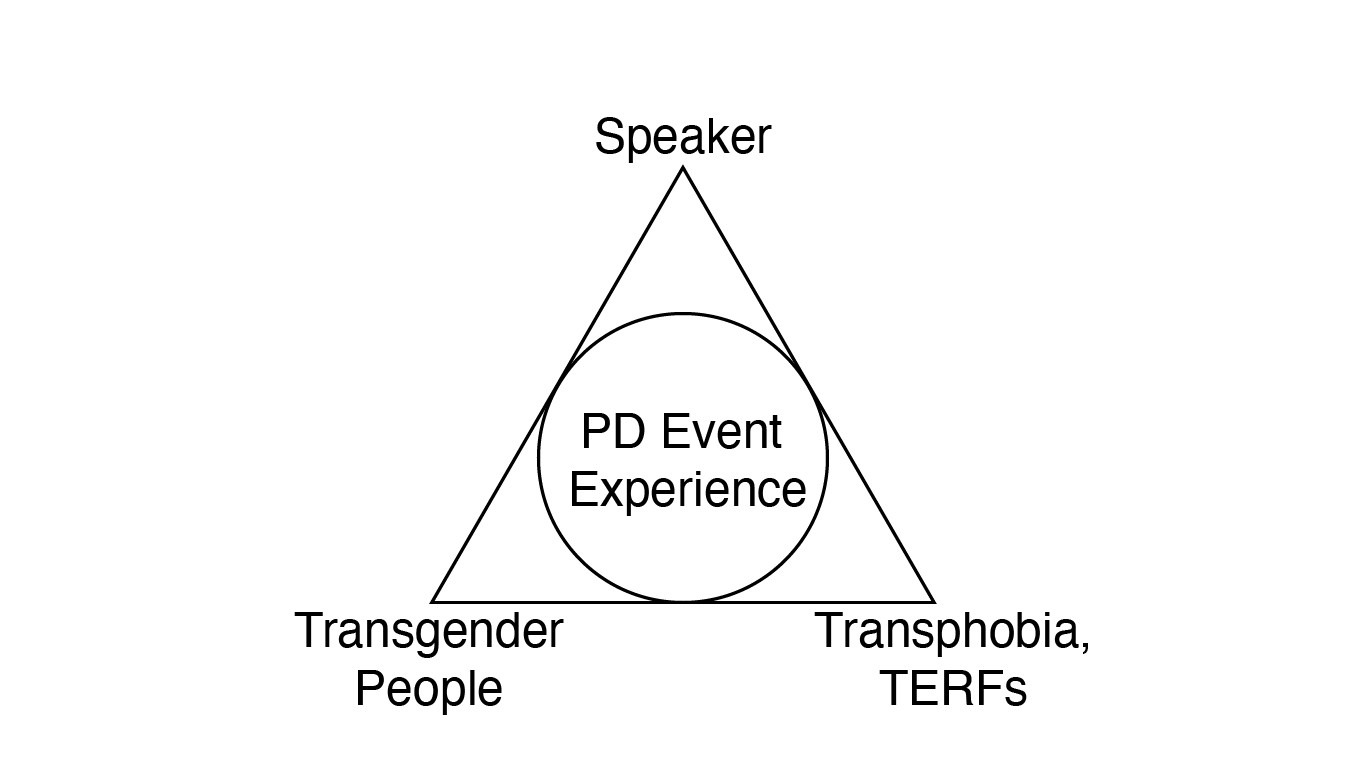I recently undertook a personal development practice and found out that two of my highest personal values is growth and ethics. It explains why I find people who refuse to learn, or grow extremely infuriating, and reinforced my stance on personal and professional ethics. So when a professional library group in my state decided to invite a speaker that (for me) violates both of those values I was deeply disappointed. More so, the response I got from my objection was met with: "Our belief is that the exclusion of [library]'s initiatives would not be in alignment with the ALIA principle of free access to information." That's not even a valid excuse in this situation, you went out of your way to invite them and there are five other speakers?
In discussion with friends and colleagues, I decided that instead of writing a ranty blog post I would instead write a constructive one. Something for people to read, learn, and grow from. I'm going to intentionally keep this kind of vague, as I do hope the local profession can think long and hard about what they have done, and begin to question some of their own values. That said, I'm furiously tapping the 'Do No Harm' sign here. If you haven't read my original post about Do No Harm, I highly recommend it, especially as one of the reasons I wrote that post to begin with is the star of this particular incident.
So You Decided to Book A [harmful person]
You've found yourself on a professional committee and you're organising a PD event, well done. But, uh oh, you're about to book a speaker that might have been involved in some "controversies." Whatever shall you do? Let's see how applying the 'Do No Harm' model to your PD event goes and what learning's we can get from it.
Pro Tip: do a quick google search for [person's name] + TERF; and [person's name] + racist. It's not perfect and you'll need to thoroughly vet the results and any bias in them, but it can give you a good idea of what to research further.
To recap the model, there are three main strategies that we can use to minimise harm to our community, and profession:
- Harm Reduction - Reduce the harm from library/information use for both the individual and community.
- Supply Reduction - Reducing the supply of harmful information.
- Demand Reduction - Preventing the uptake of harmful information.
Harm Reduction
By giving harmful people platforms to speak at, regardless if they are speaking about the topic in question, you risk re-traumatising an effected community. You could also expose people to new trauma, such as isolating community groups from your event (ie. having a TERF speak at your PD event makes it very clear that your trans community and allies are not welcome, even if that person is speaking about something unrelated).
Supply Reduction
When you invite people to speak at your PD event you are showing that you endorse their actions and ethics. You are supplying them with a platform and showing that they are accepted by you and your committee/group. At best it comes across as misguided, at worst a malicious act (Is this a dogwhistle? What core values are you looking to promote to your community/profession?).
Demand Reduction
By giving a platform to someone harmful, you are actively promoting their ideas, and in some cases reinforcing their past actions/decisions as 'good ones'. Your event then might inspire another group to ask that speaker to talk, or encourage other 'controversial' speakers to talk at your next event.

These things don't operate in a vacuum. You can't choose to ignore one of the aspects and expect everyone to have a good time.
Learning Opportunities
I wrote about how hiding behind supposed 'neutrality' and 'freedom of information' is detrimental to our profession, in my previous post. At this point I feel like I'm just saying the same things over and over. Deep systematic change needs to occur to prevent this kind of thing from happening again, and again, and again.
But People Need to Hear About [thing]
Yes, cool, I get it, but could you maybe ask someone else to talk about the thing? Maybe someone from the same organisation who isn't as problematic? What about looking at marginalised communities and asking them to talk about their [thing] instead?
It's not censorship to not ask someone to speak at an event, and if you do your research before asking them you can avoid having to cancel later (most of the time). It is harmful however, to choose to give a megaphone to someone with harmful ideas, regardless of what they are supposed to be talking about.
Be Better, Do Better
At this point, we as a profession (and decent humans tbh) need to do better. We need to be better than what we have been in the past. Libraries often talk about supporting our communities and lifting them up, yet we still make decisions like this without a second thought. Or worse, we knowingly choose to continue with something once its harm potential has become known.
It's ok to admit you made a mistake. For a while there the idea of 'it's ok to fail' was big in the library world. Mostly it related to makerspaces and the like, but I have a lot of time for someone who makes a mistake and learns and grows from it. This is the hope I have for the profession, there are a lot of good people out there fighting for what is right, and sometimes, you get a tiny window of hope coming through (page 34).
For now though, I'm going to keep tapping that sign and call things out until people learn.